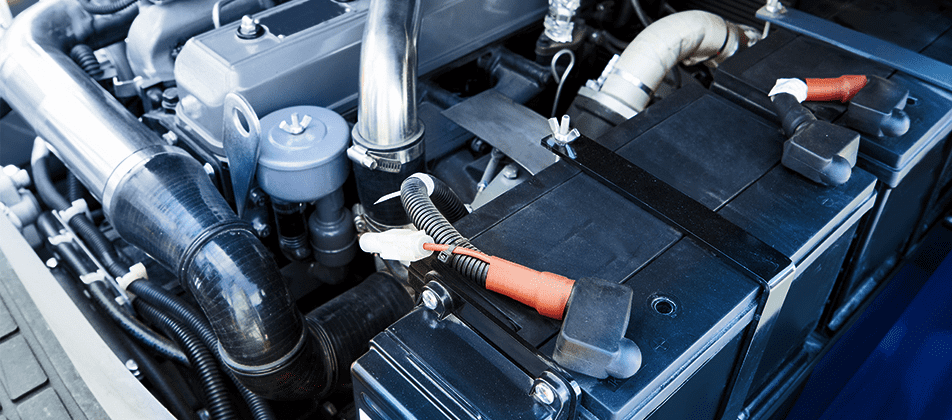How to choose a battery for a commercial vehicle?
There are numerous models of batteries for commercial vehicles. However, it is important to choose a device that will start the engine in any weather and ensure the performance of numerous essential electrical appliances in your vehicle.
Requirements for batteries for commercial vehicles
The increased requirements for vehicle batteries are explained by the design features and operating conditions of commercial vehicles. Such vehicles are characterized by a significant mass of the body and engine, and a large number of power consumers in the on-board network, many of which have to work autonomously from time to time . Based on these characteristics, batteries for commercial vehicles should be:
- Heavy-duty oriented, suitable for heavy loads when starting a massive power unit;
- Resistant to vibration, shaking, shocks, and other mechanical influences caused by rigid shock absorption and off-road driving;
- Resistant to self-discharge in order to start engines of heavy vehicles even after a long break in its use;
- Able to work at full power in all weather conditions, including hot weather and frosts.
When operating commercial vehicles, one may need to turn on the cab heating and lighting in autonomous mode. To do this, you need to buy a battery with a high capacity. Every device has a limited operational life and a number of available discharge/charge cycles. The higher the indicator, the better the operational properties of the battery. For a stable engine start at subzero temperatures, a battery with a sufficient amount of starting currents is needed.

Types of batteries for commercial vehicles
Taking into account the listed requirements, you can buy a vehicle battery of a suitable design. Device specifications largely depend on the state of the electrolytic solution and the type of plates. According to this parameter, batteries can be:
- Lead-acid, which is classic version of a battery with containers for liquid electrolyte and lead plates. Such batteries are highly resistant to overcharging, but they are not really long lasting.
- Gel type batteries – in this case, the electrolyte is present in the form of a gel, which eliminates its leakage when the battery is turned over or tilted. It should be kept in mind that improper use of the battery charger for commercial vehicles of this type can damage the battery;
- Manufactured using the AGM technology — these are modern devices in which the plates are separated by a layer of fiberglass impregnated with electrolyte. Such batteries are resistant to vibration and last for a long time even with intensive use.
When buying a battery for a commercial vehicle with suitable specifications, it is necessary to focus on your vehicle’s peculiarities. If a starter and alternator of the simplest design are installed in your vehicle or if some kind of power supply network issues take place, it is better to choose a lead-acid model. Gel batteries are good for vehicles that use lots of electrical appliances that require energy to stay powered. AGM batteries are pertinent for smooth operation of modern-day commercial vehicles, for long-distance trips and severe operating conditions.

Choice criteria for a commercial vehicle battery
The next stage of choosing a battery for a commercial vehicle involves the analysis of technical specifications. One of them is the polarity of the device, which determines the location of the negative and positive terminals. An mistake made when connecting the battery to the terminals can lead not only to rapid discharge and breakdown of electrical appliances, but also to an explosion, therefore, this specification should be taken into account.
The following criteria for choosing a vehicle battery also play a major role:
- Minimum capacity: specified in the vehicle’s user manual for a standard battery. This is the lowest indicator required to start the engine of a vehicle;
- Reserve capacity: defined in minutes. The value indicates how long it takes for a battery to discharge while driving when energy is consumed for heating and lighting the cabin;
- Nominal voltage: depends on the vehicle’s mass. For heavy vehicles, an indicator of 24 volts is required, while for light commercial vehicles the indicator is 12 volts;
- The starting current is a value of the electric current that must be supplied to the starter to start the engine. This value defines how quick the engine can be started.
Battery application also depends on types of battery terminals (post or stud terminals). People these days basically use maintenance-free batteries, which do not require topping up water.

